Deciding to go to rehab is a huge step to begin your recovery from substance use disorder (SUD), but the decision can understandably be a stressful one. Many people entering rehab ask us: “can I get fired for going to rehab?”
Thankfully, there are legal protections for employees working towards recovery in a treatment program. If you are considering treatment but are concerned whether attending rehab will impact your employment status, you have options. The Family Medical Leave Act and the Americans with Disabilities Act could both protect you as you pursue a happier, healthier lifestyle.
Family Medical Leave Act
The Family Medical Leave Act (FMLA) is a federal law that helps employees working for a company that employs more than 50 people. It is the same law that allows parents to take time off after the birth of a child. It also covers those who need to take time off to receive treatment for a serious medical condition.
If you have worked for a company that employs 50 or more people for at least 12 months, you may be eligible for up to 12 weeks of leave from work to address a serious medical condition. This includes attending rehab to seek treatment for a substance abuse disorder. Upon returning to work after FMLA leave, your employer is required to allow you to return to the same position you left (or an equivalent position) without a reduction in benefits, pay, or status.
Frequently Asked Questions about FMLA and Rehab
Q: Will My FMLA Leave Be Paid?
A: Unfortunately, time taken off under FMLA is not always paid. This varies from employer to employer. Some employers allow (or require) you to use saved vacation time for a portion of your leave.
However, if you are worried about how taking unpaid leave will impact your financial situation, consider the strain continued substance use could put on your finances. Taking time off now to address your substance use disorder and reach recovery will allow you to return to work more successfully and increase your future earning potential.
Q: What If I Work For a Company With Fewer Than 50 Employees?
A: Some states have laws that require small businesses to grant medical leave to their employees. In California, for example, the California Family Rights Act requires businesses with 5 or more employees to grant medical leave. Check your state laws or inquire with your HR manager to see what options you have when it comes to taking a medical leave. If your company does not have options, you may still be protected under the Americans with Disabilities Act.
Q: How Much Time Can I Take Off Under FMLA?
A: Eligible employees are entitled to 12 weeks off per 12-month period. You do not need to use these weeks consecutively, and you do not need to use all 12 weeks.
Q: Do I Need to Enter a Treatment Program to Utilize FMLA?
A: Yes. FMLA cannot be used for missing work due to being ill or unable to work because of your substance abuse. You must be actively participating in treatment provided by a healthcare provider, or through a referral from a healthcare provider. Absence because of the use of a substance does not qualify for FMLA leave.
Americans with Disabilities Act
If you haven’t been working for your company for 12 months or are not able to take advantage of FMLA for another reason, the Americans with Disabilities Act (ADA) could help protect you. This law prohibits the discrimination of employees who have disabilities. Diagnosable substance abuse disorders are considered disabilities under the ADA. If you are using it on the job, however, this act does not protect you. Employers can fire employees if they are found to be using drugs or alcohol on the job, or if their substance use negatively impacts job performance or safety.
If an employee decides to voluntarily seek treatment for a substance abuse disorder, they can’t be fired for going to rehab. You may take vacation time to go to rehab, and if your employer discovers the reason for your time off, they cannot fire you because of it. This is because the ADA protects those who are in recovery, which is defined as either no longer engaging in the use of illegal drugs or someone who is participating in a supervised rehabilitation program and is no longer using drugs illegally. The ADA states that past mistakes can’t be used as a reason to fire an employee after their employer has found out they are entering treatment.
Rehab, SUD, and Employment FAQs
Whether FMLA or ADA regulations apply to your situation, you may have other questions about seeking rehab or recovering from SUD while working. Here are the most common.
Q: Do I Have to Tell My Job I’m Going to Rehab?
A: Substance abuse disorder is a medical condition. Therefore, you do not need to be specific when it comes to disclosing why you are taking time off, as information regarding your SUD is protected health information. You can use general language, such as saying you need to take time off due to a medical condition.
Depending on the relationship you have with your boss, you may choose to be open about your reason for taking time off. If you do disclose more details, be sure to stress the importance of receiving treatment as well as your desire to return to work once you are on the road to recovery. Be careful to ensure you understand your company’s policies when it comes to substance use before disclosing more information than necessary. If an employer has a policy regarding substance abuse that is applied to all employees in a nondiscriminatory manner, a provision in the policy about enrolling in treatment could lead to termination.
Q: Will My Work Let Me Go to Rehab?
A: Since substance abuse disorders are medical conditions, your employer does not have the right to stop you from getting treatment, just as they wouldn’t be allowed to prohibit someone with cancer from getting treatment. Depending on the size of the company you work for and the state you live in, there may be some difficulties surrounding getting time off for treatment. However, getting the treatment you need to move towards recovery is more important than any job in the long run.
Q: What Should I Do if My Request for Leave to Attend Treatment is Denied?
A: If your request for leave to attend treatment is denied, your employer may have violated the Americans with Disabilities Act or a state law, depending on where you live. More importantly, your health and happiness is most important. And, substance abuse is a huge problem in California and beyond.
If your request is denied, make sure you completed the process to request leave correctly and clarify the issue with your HR manager. If you are still being denied leave but believe you are protected under the ADA or Family Medical Leave Act, the treatment center you are considering may have resources to help you.
Tips for A Successful Return to Work After Treatment
In addition to understanding your rights and protections as you return to work, such as not being required to disclose why you were gone, there are other tips that can aid in a successful return to work after rehab.
Find Your Support System
Whether your support system includes co-workers is up to you, but make sure you have a support system in place during recovery and your return to work. At luxury treatment centers like Lilac Recovery Center, you’ll be connected with others with similar life experiences encountering similar challenges. You may benefit from establishing a support system that includes others returning to work after recovery so you can relate to the experience with another person.
Continue to Practice Self Care and Establish a Work/Life Balance
Work can be stressful even if you aren’t recovering from a substance abuse disorder. Finding a balance between work and your personal life is crucial for your mental health. Make sure to find time to do things that bring you joy and set boundaries when it comes to how much time you spend on work. Utilize coping strategies you learned during treatment to deal with the stress.
Take Your Time
Jumping back into a full-time job after attending rehab can be overwhelming, which can lead to strong emotions that could trigger your desire to use. Ease your way back into work whenever possible and consider working part time at first and gradually building back up to full-time. This will allow you to focus more time on your health and increase your chance of long-term recovery.
Take Aftercare and Follow-Up Care Seriously
Many rehab facilities offer aftercare treatment plans to help with your transition back to your normal life and avoid relapse. There may also be opportunities to participate in follow up support groups which can help with your recovery and provide a space for you to get advice on things you’re finding difficult about returning to work.
Don’t Wait: Seek the Treatment You Need to Begin Recovery
Making the decision to seek help is difficult enough without worrying about losing your job. However, if concerns about losing your job are holding you back from getting the treatment you need to address substance use, remember the legal protections you have. Additionally, consider how avoiding treatment may eventually lead to work issues and even termination, especially if your substance use interferes with your ability to be a good employee.

CADC II, Certified AOD Counselor
Nora Jenkins has made the quality and committed care we provide at Lilac Recovery Center possible. Nora is experienced in providing care to assist in rebuilding relationships to support healthy, long-term recovery. Her professional background includes clinical management, program administration, and counseling.







